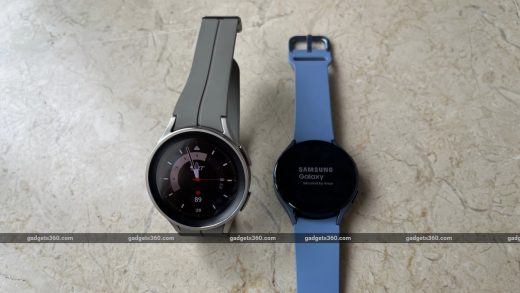
Android 15 Developer Preview 2 was released by Google on Thursday, allowing developers to try out an early version of the company’s next major operating system update for Android smartphones. The second preview comes with several improvements to existing features as well as new features that take advantage of modern smartphone hardware, including satellite connectivity and foldable screens. Apps will also gain new abilities, such as detecting when the screen is being recorded. Most of these features are expected to be a part of the first open beta scheduled to arrive next month.
One of the most notable new features arriving with Android 15 will be satellite connectivity. While manufacturers could always build in support for these features, the arrival of official support means that the user interface for this feature should feel more cohesive across different satellite networks — including new UI elements such as a status bar icon and interactive notifications, while apps can also detect when a handset is connected to a satellite and offer messaging services.
Near field communication (NFC) support has been improved on devices running on Android 15, allowing smartphones to ‘observe’ or listen to NFC readers without responding to them. Meanwhile, Google will allow apps running on Android 15 to determine when the screen is being recorded, enabling them to prevent potentially sensitive information from being shown on the screen at the same time — apps like Google Pay currently offer this functionality when screen recording is enabled on iOS.
Foldable smartphones — especially clamshell-style handsets like the Samsung Galaxy Z Flip 5 and the Motorola Razr 40 Ultra — currently offer manufacturer-optimised support for running apps (or widgets) on the smaller external cover screen. With Android 15, application developers can declare a property that will enable the use of these apps on foldable phones’ cover screens, despite their small size, according to Google.
With newly added support for the CTA-2075 loudness standard, Android 15 will enable loudness consistency across different content types — this means that you won’t be constantly reaching for the volume buttons to adjust the volume of your phone. The Settings app has also been updated with a section called Audio sharing which will let you manage your Auracast (a new Bluetooth ‘broadcasting’ feature) sessions.
Google will also allow developers to set a specific HDR headroom level, allowing their apps to balance HDR and SDR content, instead of the parts of screen showing the former overpowering the parts displaying SDR content. You will also be able to configure the app archiving feature via the Settings app, choosing to archive or restore apps directly via the Settings app.
All of these features are currently available on the latest version of Android 15 DP 2, and are expected to make their way to the public beta releases that are scheduled to begin rolling out in April. Some of these features could be further improved, augmented, or removed in upcoming releases. A clearer idea of the Android 15 features is likely to emerge when the software reaches platform stability starting in June, according to the company’s schedule.


